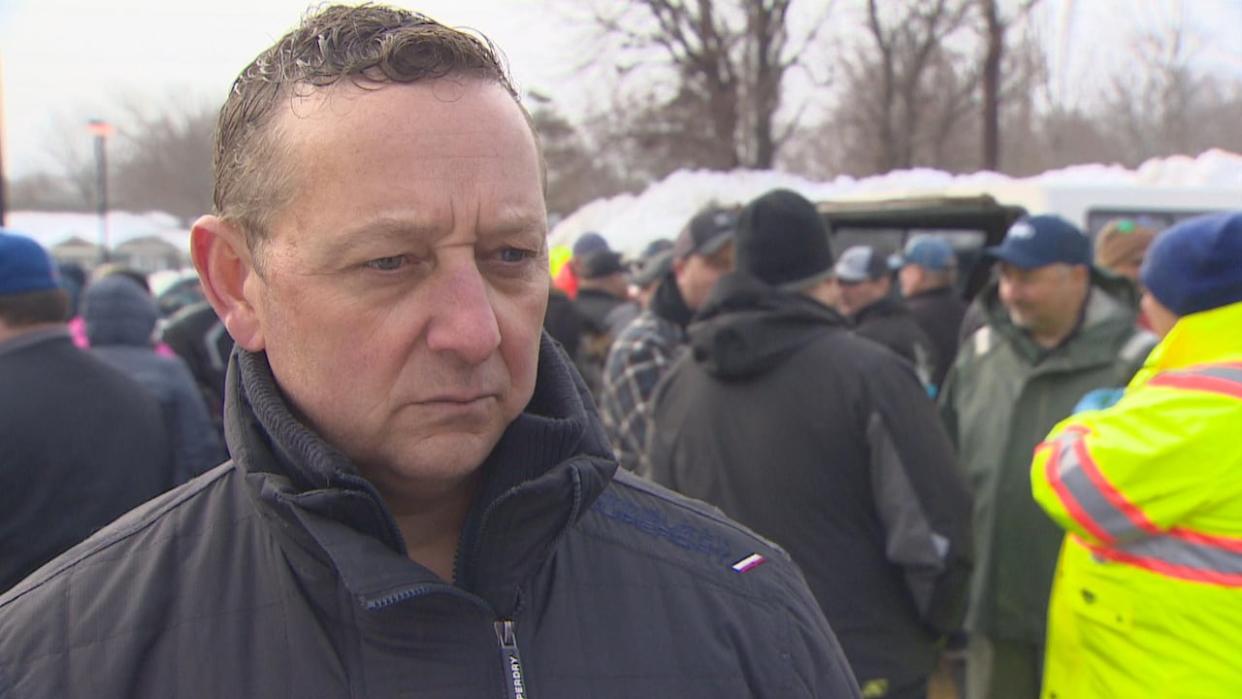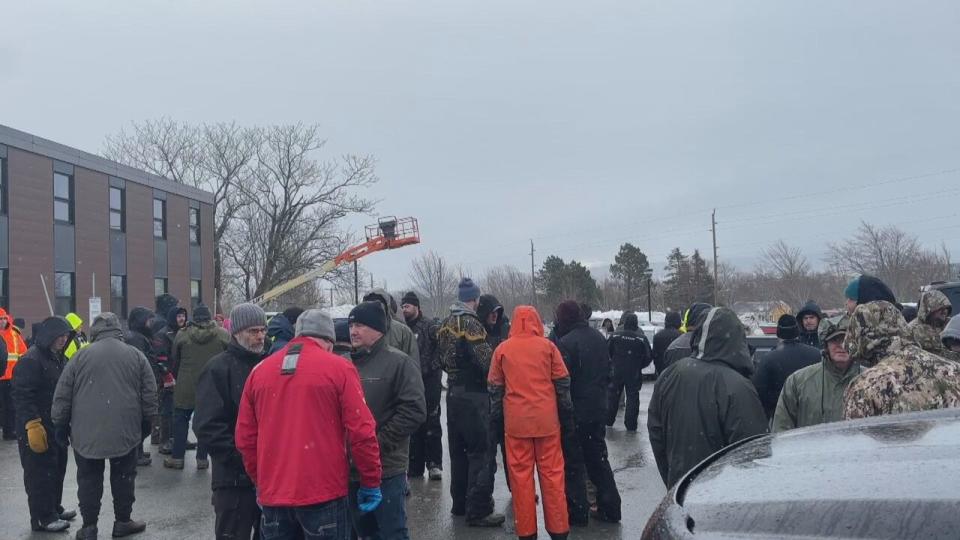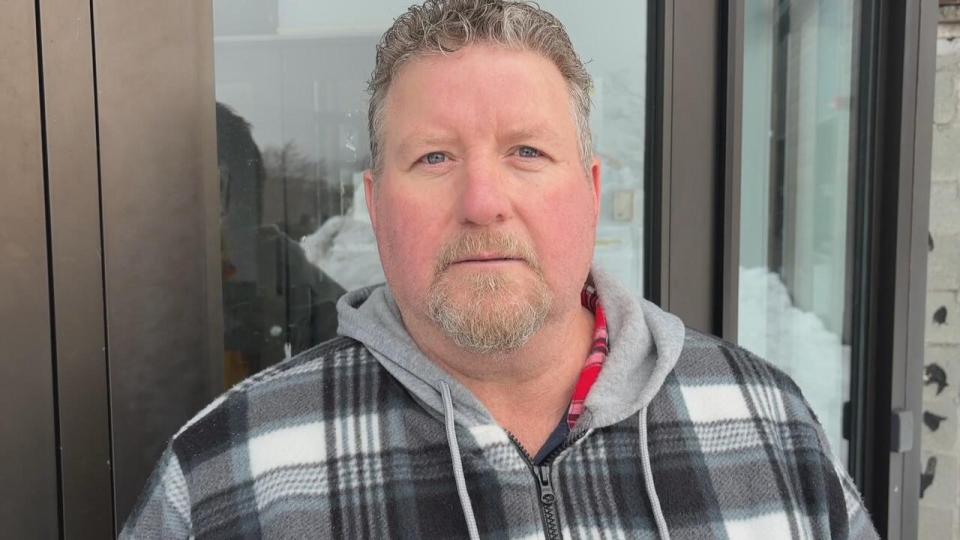For a 2nd day, crab harvesters call on N.L. government to open market to outside buyers


John Efford, a fish harvester from Port de Grave, says the protests will continue until there is change to government policy. (Danny Arsenault/CBC)
For a second day in a row, crab harvesters voiced their grievances at a Newfoundland and Labrador government building over constraints imposed on their catches.
Currently, harvesters have to sell their catches to processors inside the province at a price agreed upon by the Fish, Food & Allied Workers union and the Association of Seafood Producers.
On Tuesday more than 150 protesters took to the Confederation Building to lay out their grievances and demand that they be allowed to sell their catches to out-of-province buyers.
On Wednesday morning, harvesters congregated at the parking lot of the provincial government's Department of Fisheries and Aquaculture building, also known as the Petten Building, located on Strawberry Road in St. John's.
They blocked the entrance, preventing employees from entering.
John Efford, a harvester who was part of the protest, said they were gathered to reiterate their message from the previous day.
"It's a show of numbers, a show of numbers to the government. B'ys look, you know we're all on board here. All the fish harvesters got the same issues. We want free enterprise," Efford told CBC News.
He said companies have taken advantage of government policies "to create a cartel and collude to control the fishery" and that the government could change that policy and fix the situation.
Blocked access
Royal Newfoundland Constabulary officers were also present, including walking through the crowds.
Bruce Short, a harvester from Long Island Beaumont, Green Bay, said he was at the protest to push for changes to the current model despite having a heart attack three weeks ago.

Hundreds of harvesters gathered outside the St. John’s Department of Fisheries building on Wednesday morning. (Darrell Roberts/CBC)
"We're just not going to let anyone in the building until someone does right by us," said Short.
This might be the harvesters' last chance to protest ahead of the crab harvest season starting up, he said.
"And if we don't do it now, you will be going back out on the water again for crab. You'll be bringing it in and you'll be giving it to the companies. And they're going to be laughing at you, all the way to the bank," said Short.
Efford apologized to government workers as crowds obstructed the building's entrance.
"I'll put it out there now, that I apologize to any workers of the Petten Building that can't get in here today. Enjoy your holiday," said Efford. "The protest is going to continue on until the policy's changed."
Calls for change
Short said he was protesting the right to make a living in the fishing industry.
"Most everyone here has grown up working on the water and right now we have a cartel in this industry. And it seems like that the powers that be — the ones that are supposed to be looking after this province — our government has been taken over by big business," he said.
Short said they want the right to go out onto the water when they want and to have access to all species of fish.
"And not just the companies telling us when we can go and when we got to come in."

Harvester Bruce Short says harvesters are fighting for their rights and to secure their livelihoods. (Darrell Roberts/CBC)
Short also said there have been times when harvesters have been told to go out onto the ocean when the weather "hasn't been fit" and people have died.
He said the current situation has to end and by gathering independent fish harvesters, as well as plant workers, they can make that change.
"Because when we are gone, when we're finished, the plants will be gone as well," warned Short.
Download our free CBC News app to sign up for push alerts for CBC Newfoundland and Labrador. Click here to visit our landing page.

